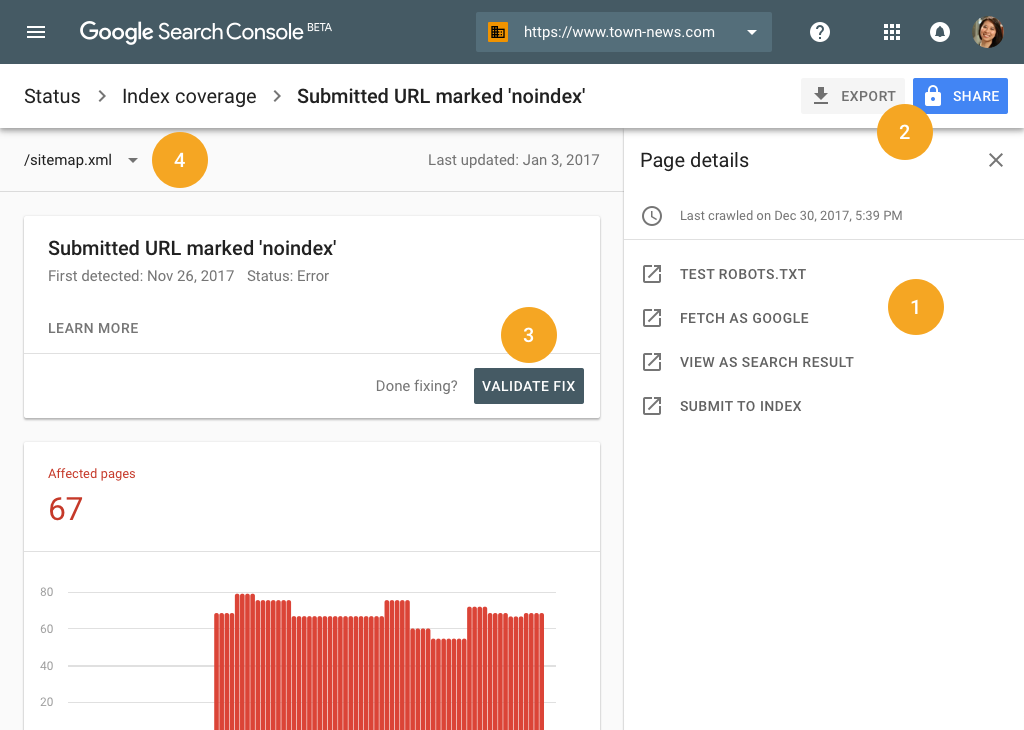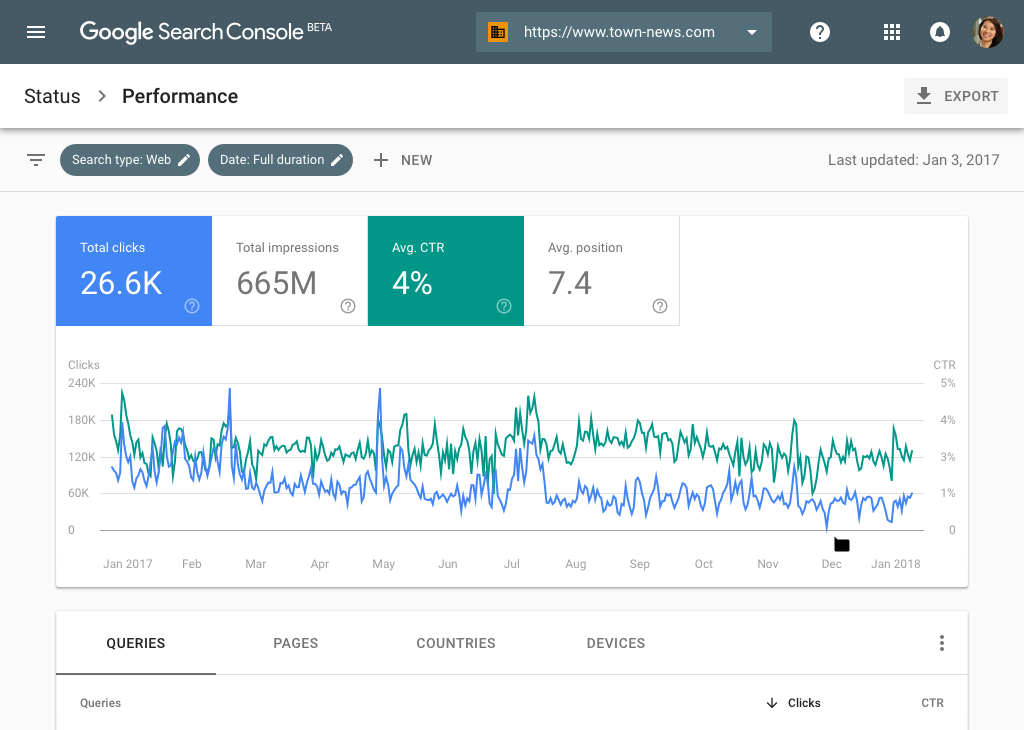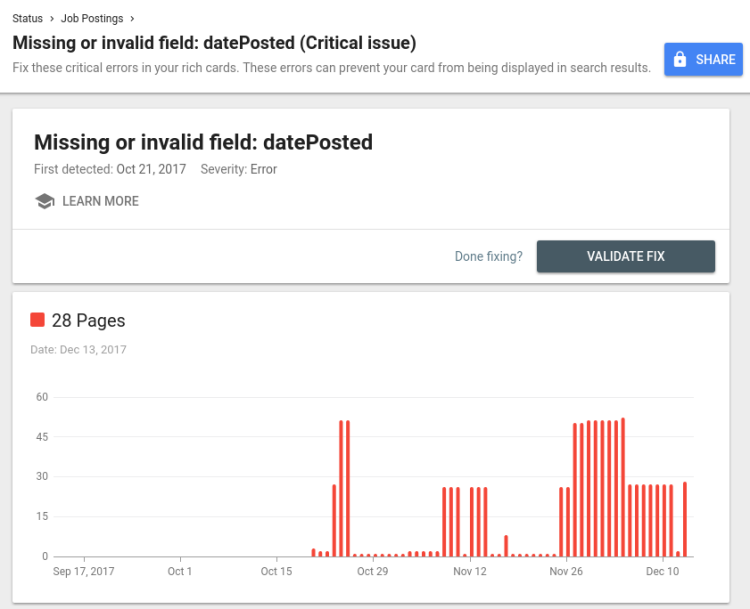testsetset
Google has announced that it’s rolling its new Search Console to website owners globally.
Formerly known as Webmaster Tools, the Google Search Console is a place where those in charge of maintaining websites can analyze their site’s indexing on Google Search, view analytics, peruse inbound links, submit and remove content for crawling, monitor malware, and more.
The internet giant has been beta testing a new interface with some users since at least July, but the company didn’t officially unveil the new incarnation until early August. Starting from today, the company will make both versions of the Search Console available — so you can basically flip back and forth between versions until the new one is ready to exit beta.
In terms of what you’ll find in the new Search Console: Well, there is a new Index Coverage report, for starters, which provides insights into how URLs from across a specific site are indexed while providing reasons as to why a particular URL may not be indexed. Indeed, you can click on an error URL to view page details and links to diagnostic tools.
June 5th: The AI Audit in NYC
Join us next week in NYC to engage with top executive leaders, delving into strategies for auditing AI models to ensure fairness, optimal performance, and ethical compliance across diverse organizations. Secure your attendance for this exclusive invite-only event.

Above: Index Report
Arguably the most important facet of the new Search Console, however, is the enhanced date ranges for analyzing historical data in Search Performance reporting, something that has been a major issue for webmasters for a while. For the uninitiated, Search Performance reports highlight metrics on site performances on Google Search, including average position in search results, total impressions, and clickthrough rate (CTR).
Moving forward, webmasters will be able to access up to 16 months of data, which compares favorably to the usual 90 days.

Above: Search Performance
Elsewhere, Google has also added a number of features to help website owners improving their online presence.
For example, the company has been pushing its accelerated mobile pages (AMP) project for a few years already, with a view toward improving the performance of web pages on mobile screens. While online publishers have largely embraced the initiative to ensure their sites load super quick on any device, errors can prevent Google from AMP-ing a page. However, a new Search Console reporting feature provides more details on specific errors and warnings identified by Google for specific pages, while allowing webmasters to provide faster feedback to resolve issues.

Above: Google Search Console: AMP errors
Related to this, Google is also providing a job postings report, which ties in with the company’s broader push into the employment realm. Last year, Google partnered with a number of notable technology companies, such as Monster, Facebook, CareerBuilder, LinkedIn, and Glassdoor, to let you job-hunt and receive email alerts directly through Google Search.
You may be able to view data regarding job listings on your website now, though the Google for Jobs initiative is currently only available in a handful of locations.
If you are a webmaster, you won’t need to keep checking to see whether you have access to the new Search Console — Google will send a message letting you know.

